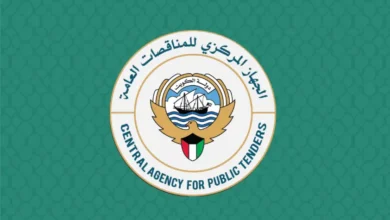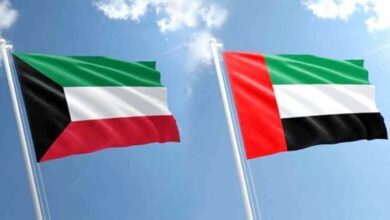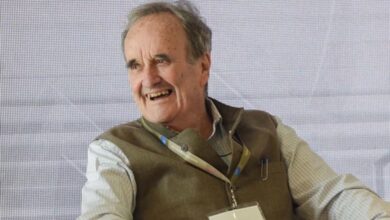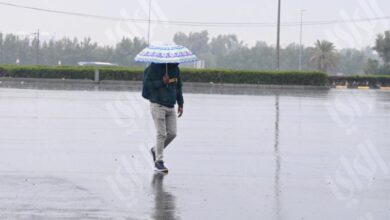Bilateral trade between Vietnam and Kuwait reached US$7.3 billion
Strategic partnership with Kuwait now covers several key sectors, says Vietnam’s Prime Minister
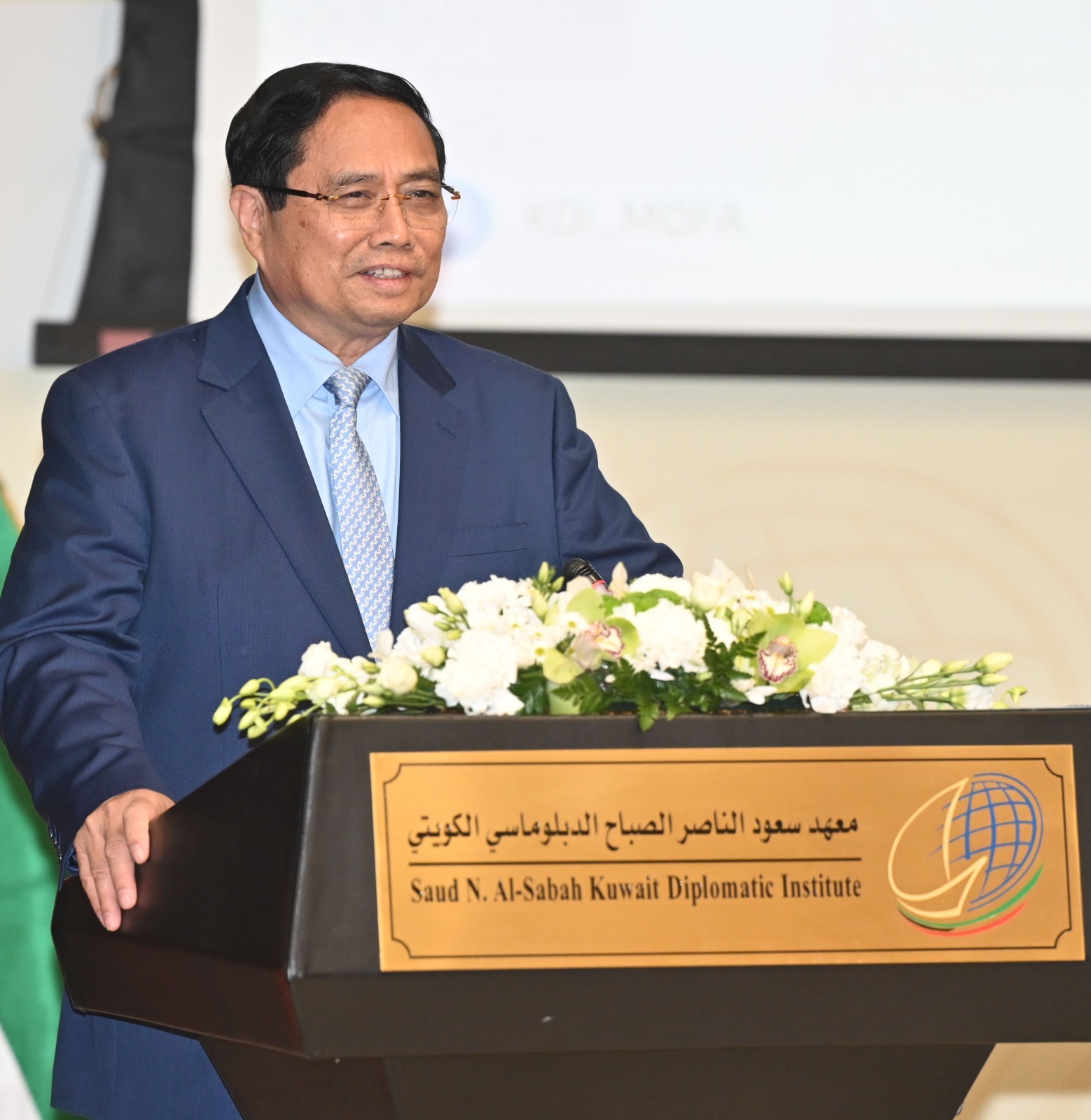
The Times Kuwait Report
The Prime Minister of Vietnam Pham Minh Chinh said Kuwait is Vietnam’s largest trading partner in the Middle East, with bilateral trade reaching USD 7.3 billion.
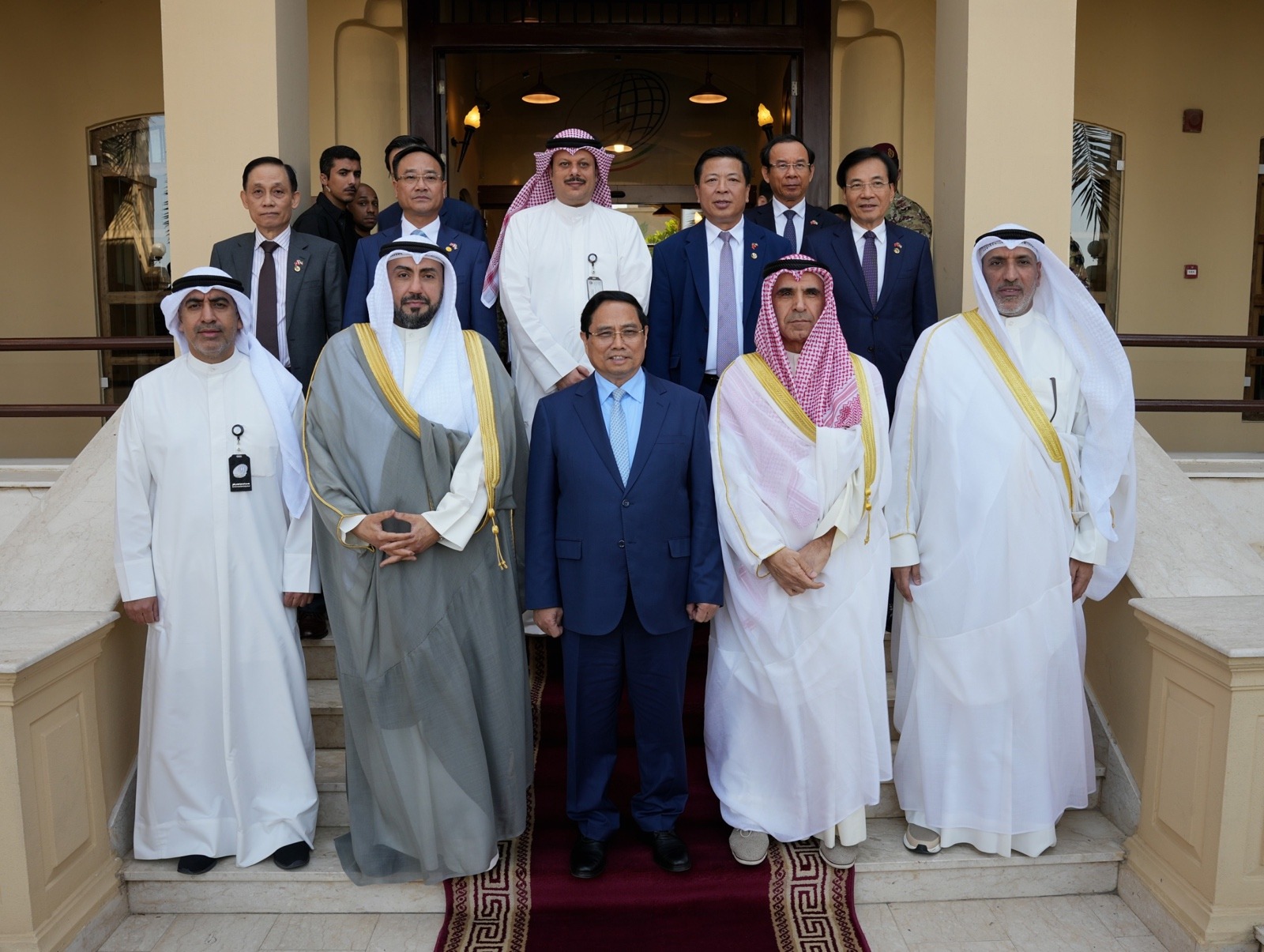
He revealed that both countries have agreed to elevate their relationship to a comprehensive strategic partnership encompassing nine major sectors, ranging from political cooperation and non-traditional security to science, technology, innovation, energy, oil and gas, investment, food security, halal industries, cultural and educational exchange, and coordination on regional and international issues.
Chinh delivered his remarks during a lecture which was held under the title ‘Vietnam’s Foreign Policy and its Vision for Vietnam–Kuwait Relations,’ held at the Saud Al-Nasser Al-Sabah Diplomatic Institute, in the presence of ambassadors, diplomats, and academics.
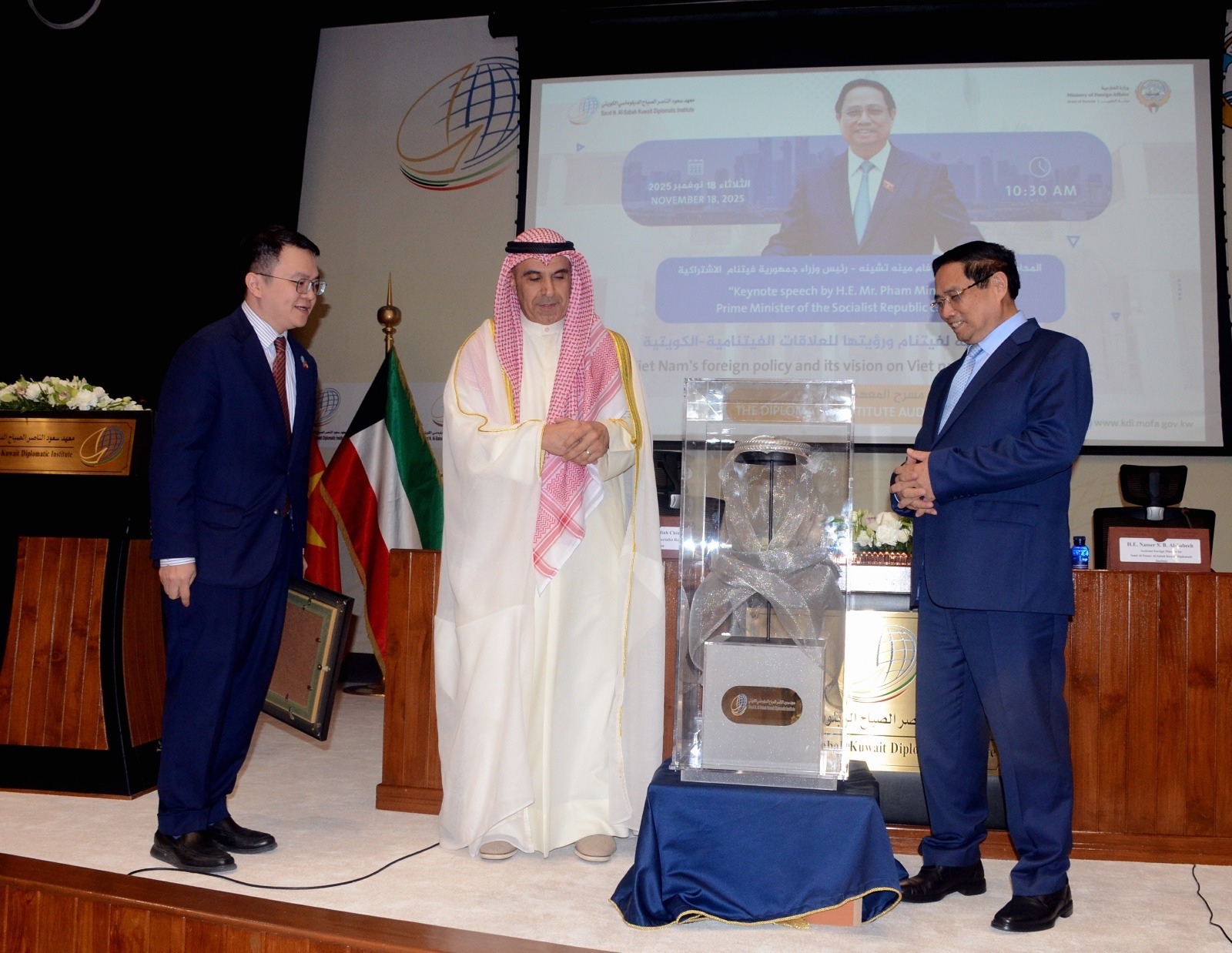
The Prime Minister stressed that Vietnam views Kuwait as a loyal friend and a reliable partner, explaining that both nations share a commitment to peace, independence, and sustainable development.
He recalled moments in history where Kuwait and Vietnam stood by each other during difficult circumstances, noting that wars “produce no true winners” and that their heavy human and material costs reinforce the importance of peace.
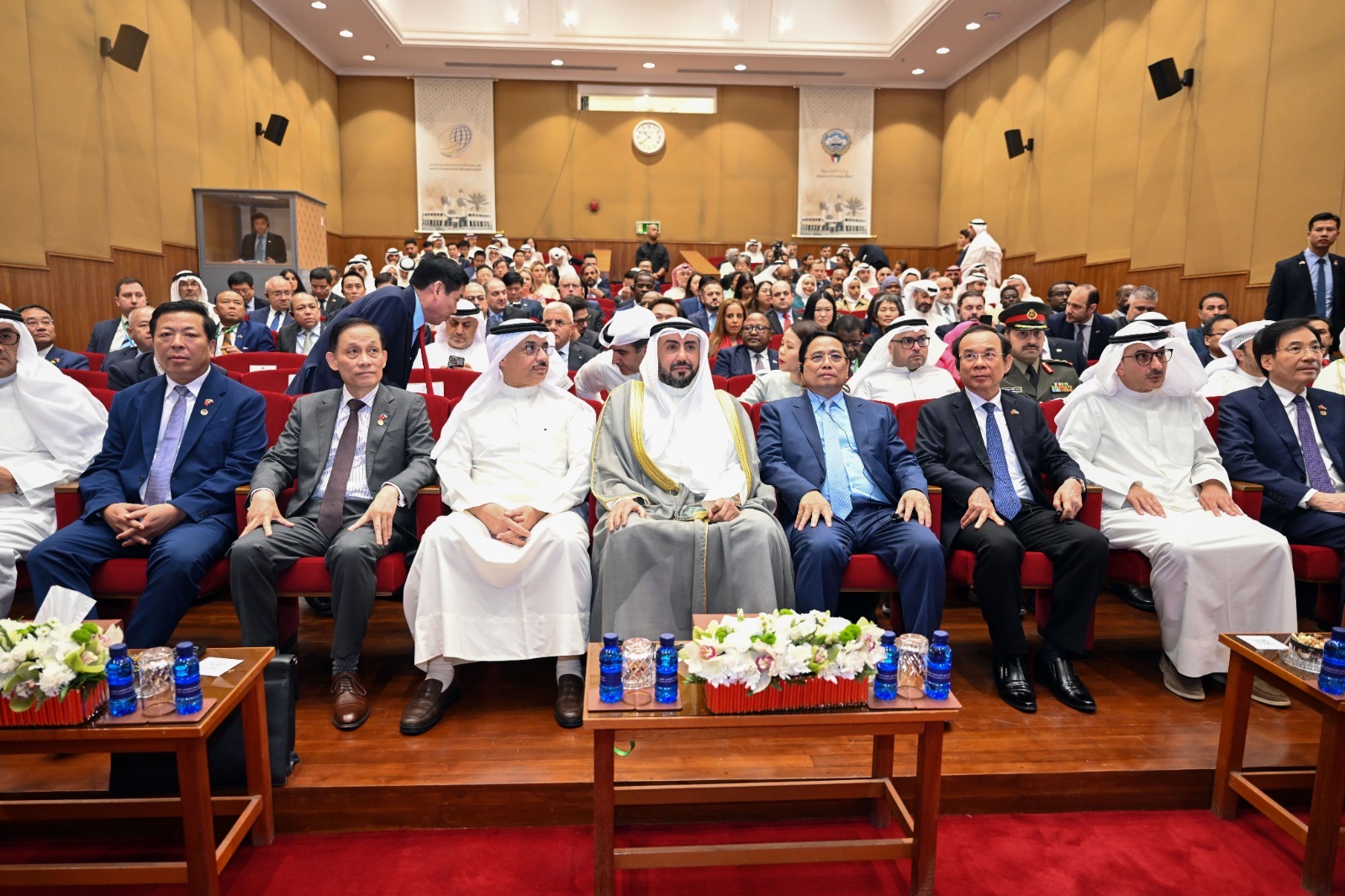
These shared principles, he said, have strengthened the bond between Hanoi and Kuwait and paved the way to deepen cooperation in energy, investment, education, and scientific and technological advancement.
Chinh described his visit as historic, marking the first high-level Vietnamese delegation to Kuwait in 16 years and coinciding with preparations to celebrate the 50th anniversary of diplomatic relations.
He emphasized that Kuwait was the first country in the Middle East to establish diplomatic ties with Vietnam in 1976 and one of the earliest to adopt a strategic partnership framework.
He went on to say, the agreement that was reached last March to further elevate the relationship, reflects the confidence and ambition shared by both sides.
The Prime Minister praised the Saud Al-Nasser Al-Sabah Diplomatic Institute, describing it as a distinguished academic institution that has contributed to the training of generations of diplomats.
He expressed Vietnam’s desire to expand cooperation under the existing memorandum of understanding and commended the institute for preserving its architectural and cultural character for more than eight decades, making it a landmark of Kuwait’s diplomatic history.
Chinh also highlighted Kuwait’s long-standing humanitarian role, recalling the words of the late Amir Sheikh Sabah Al-Ahmad Al-Jaber Al-Sabah, who emphasized the world’s yearning for peace and justice.
He said these values are deeply embedded in the foundation of Kuwait–Vietnam relations. The Prime Minister noted major joint initiatives such as the Nghi Son Refinery and ongoing Kuwaiti investments in Vietnam, and revealed that Kuwait had donated 600,000 COVID-19 vaccine doses to Vietnam during the pandemic, describing the gesture as “saving lives” and a true demonstration of solidarity during global crisis.
Turning to global affairs, Chinh outlined Vietnam’s perspective on the rapidly changing international landscape. He said the 21st century is characterized by complex challenges that intertwine opportunities with risks, from conflict and peace negotiations to scientific and technological transformation.
He stressed the continued geopolitical significance of the Middle East as a vital hub for global energy supply, trade routes, and a crossroads of major civilizations.
Chinh also pointed to rising non-traditional security threats, including issues related to energy, food, and water, as well as climate change, cyberattacks, and growing competition in advanced technologies, space exploration, and deep-sea resources.
He underscored the importance of multilateralism, dialogue, trust, and adherence to international law, affirming that cooperation remains the surest path to peace, stability, and shared prosperity.






















